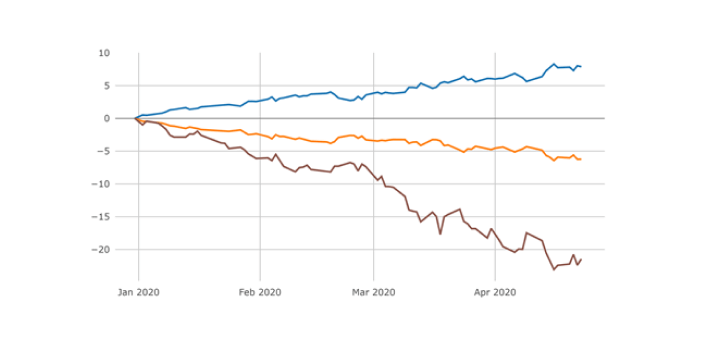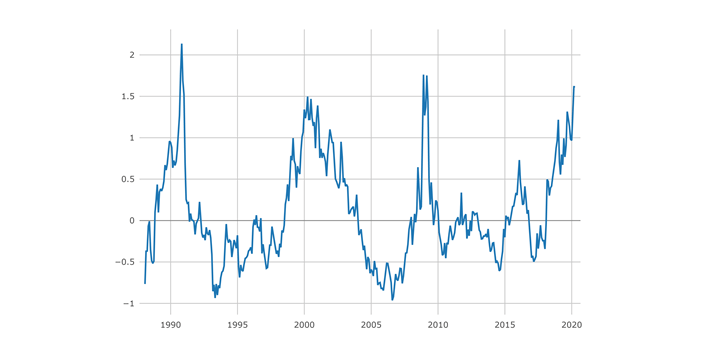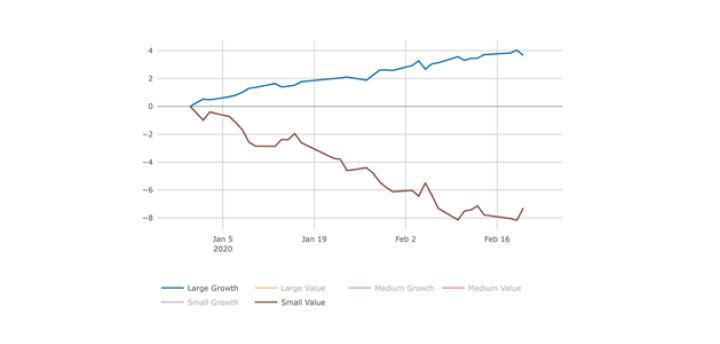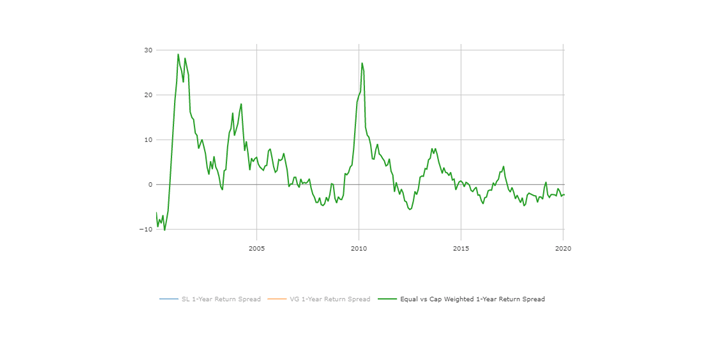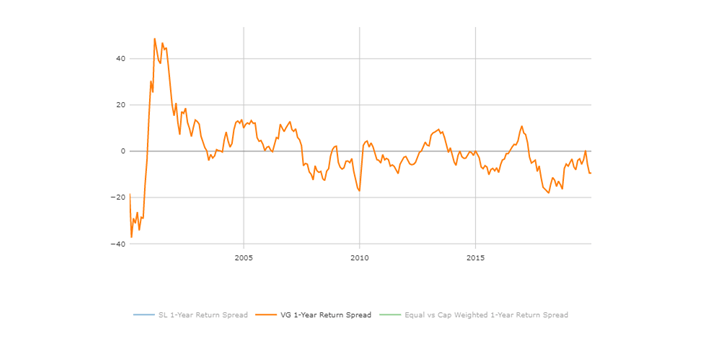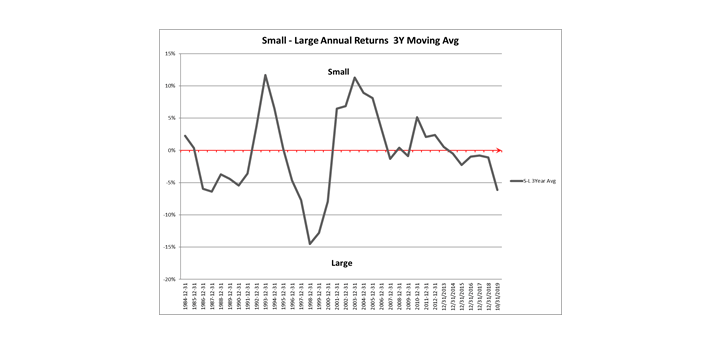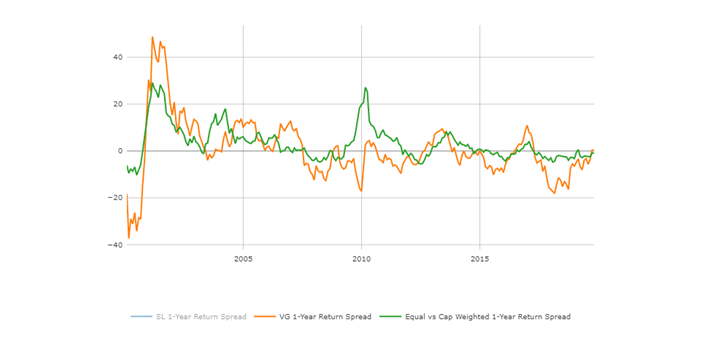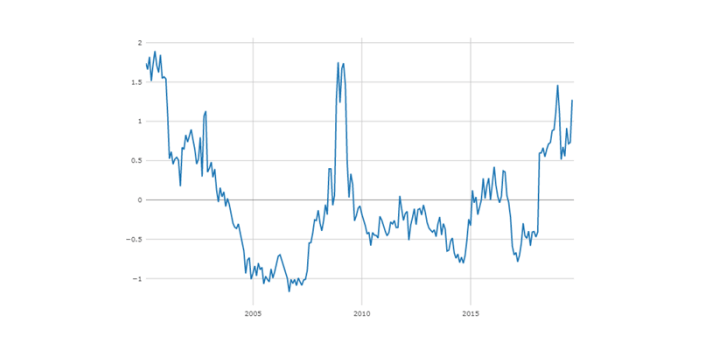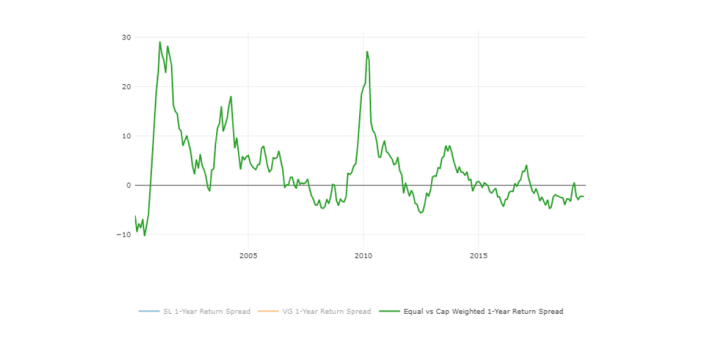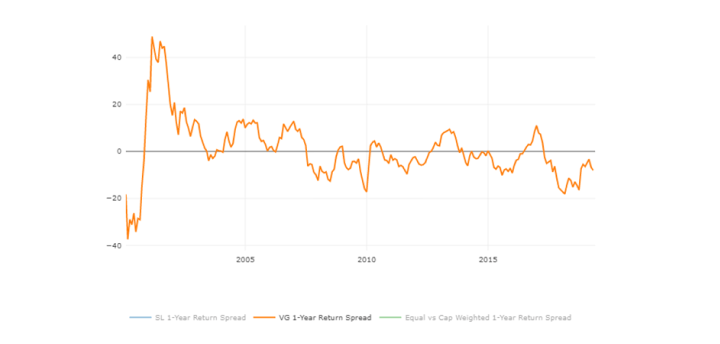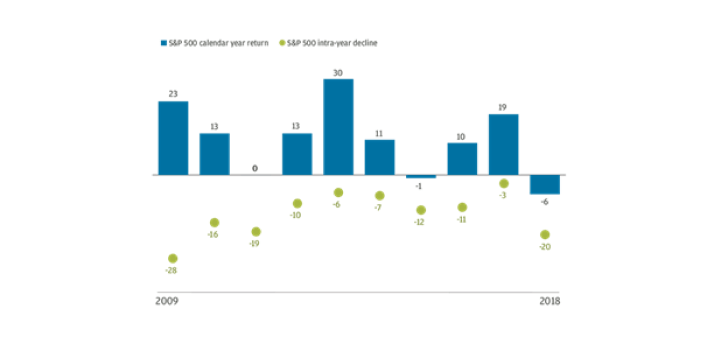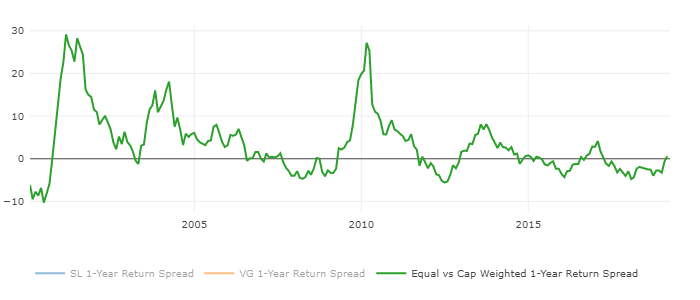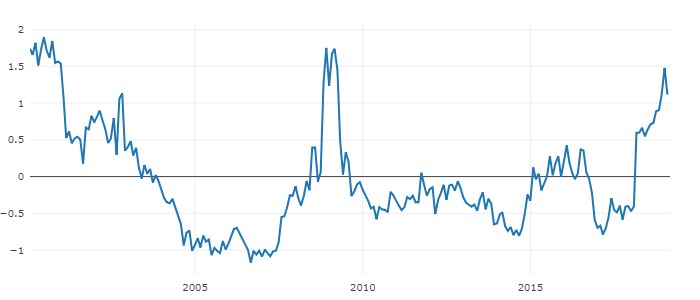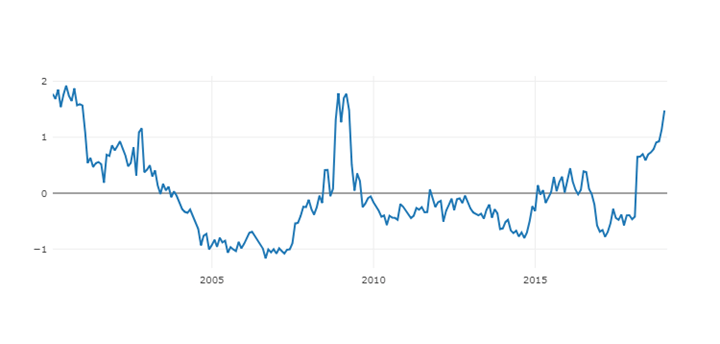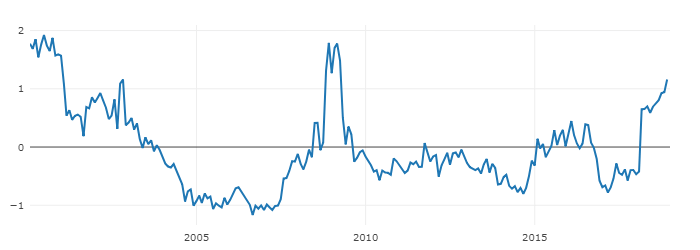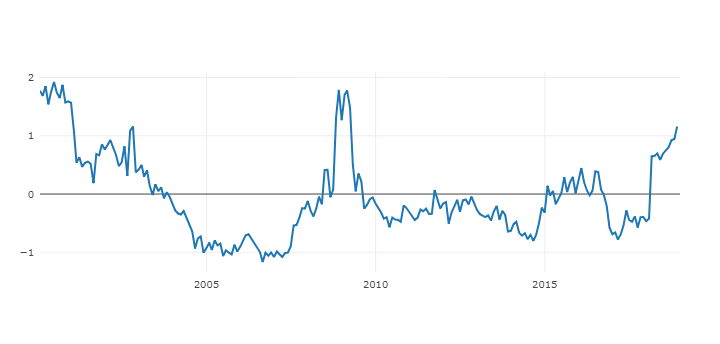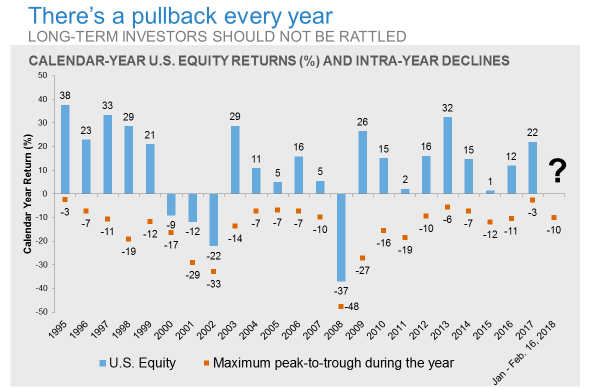Why are markets selling off?
Whenever markets fall people always try to explain why. This looks like technical selling to us, with rising rates and volatility causing some disruption & program selling. However, the reality is that “no one knows”. Markets are far too complex to draw linear cause-and-effect relationships. The one thing we have witnessed many times is that market rises attract buyers and declines attract sellers. Everyone wants a fancy story about why market goes down, but in most cases, it’s as simple as “because there were more sellers than buyers”.
Is this the end of the bull market?
We don’t think so. We remain positive for long-term investors. Fundamentals are strong. We are in one of the strongest earnings seasons in the US and the global economy is showing no signs of deteriorating.
While it’s hard to predict the exact bottom, we think the fundamentals should prevail.
The positive side of corrections – opportunity
As stocks markets have declined recently, stocks are becoming meaningfully cheaper. According to JP Morgan, the P/E on the S&P 500 using next year’s earnings estimates is now below 16. We think the ongoing market sell-off may ultimately present a buying opportunity.
It is worth a reminder that over the short-term, headlines influence returns, but our allocations are based on fundamentals. When very negative market action causes investments to fall more than our analysis suggest is rational, that creates opportunity.
What is Signet doing?
We will continue to monitor financial markets and every client’s portfolio, seeking to take advantage of potential upside opportunities and/or to avoid as much downside risk as possible.
We think we do a very good job of analyzing markets, but no one knows how things will play out for sure. That’s why it is so important to implement diversified, evidence-based investment strategies designed to perform well in a variety of scenarios. We want clients to know that we are committed to building the best portfolios for you, based on your unique circumstances and our thorough, careful analysis.
At this point, this looks like a healthy correction in markets. However, we believe the environment is changing. Returns may be harder to generate. Volatility is back, and 2018 is looking more complex for investors. Signet will continue to work hard to translate this tough investment environment into the appropriate positioning for each client’s portfolio.
What should investors do?
As one investor we respect put it, “You need to be a marathon runner when investing. Investors should never judge their decisions based on a moment in time.”
It can be difficult to stay invested during periods of market stress. It is human nature to act upon emotions, but reacting to current market conditions may lead to poor investment decisions at the worst times. As advisors, it is our job to help clients make informed decisions and take on the role of coach when confronted with difficult situations. Here are some simple tips:
- Review your risk tolerance. It helps to have an investment strategy in place with a risk level that matches your comfort level.
- Look beyond the headlines. We believe successful investing requires a solid investment approach, a long-term perspective, and discipline to stay the course.
- Let markets work for you. The financial markets have historically rewarded long-term investors.
- Review your goals and objectives. If you have a sound investment plan, it is unlikely that some short-term volatility is enough to disrupt your strategy.
- Focus on long-term trends, rather than short-term gyrations. This should give you confidence to ride the waves of volatility.
The good news is that we are confident in our portfolio positioning. Investing based on our research has paid off for our clients in the long run, and we are confident it will continue to do so.
We appreciate your continued confidence. If you have any questions, please don’t hesitate to contact us.
The information and opinions included in this document are for background purposes only, are not intended to be full or complete, and should not be viewed as an indication of future results. The information sources used in this letter are: Jeremy Siegel, PhD (Jeremysiegel.com), Goldman Sachs, JP Morgan, Empirical Research Partners, Value Line, Ned Davis Research, Citi research and Nuveen.

















































